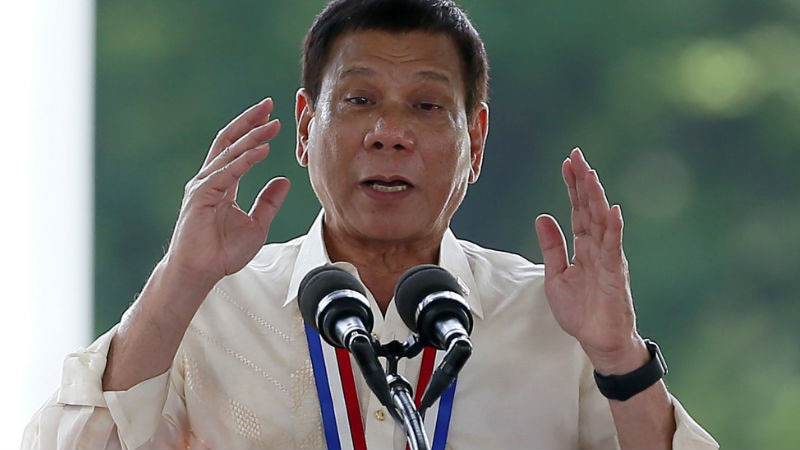Playing with the writ
For the second time in five months, President Duterte has threatened to use his office’s extraordinary commander-in-chief powers to stop a problem from getting worse. He hasn’t followed through yet, and Palace spokespersons have described the President’s brainstorm as just “an idea.” But whether vague notion or the calculated slow reveal of a calibrated plan, the President’s words are a cause for concern.
The full impact of the President’s words is a function of his use of two languages. Last Friday, at the launching of a foundation in Davao City, he said: “At kung magkalat itong still lawlessness, I might be forced to—ayaw ko, ayaw ko. Warning ko lang sa kanila ’yan, ayaw ko kasi hindi maganda. But if you force my hand into it, I will declare the suspension of the writ of habeas corpus, not martial law. Wala akong balak sa pulitika. But I will kasi wala akong remedy.”
But even if rendered completely in English, the words do not lose their bite. “If this lawlessness continues to spread, I might be forced to—I don’t want to, I don’t want to. I would just like to give them a warning, I don’t like it because it’s not good. But if you force my hand into it, I will declare the suspension of the writ of habeas corpus, not martial law. I don’t have political plans [for it]. But I will [suspend it] because I don’t have a remedy.”
In fact, the President has many other remedies available to him. But he seems to take any failure to stem the lawlessness he says is continuing to spread as a personal challenge, a direct affront. We are reminded of that time when he heard about Supreme Court Chief Justice Maria Lourdes Sereno’s straightforward answer to a question about the administration’s war on drugs, and he responded by casually asking whether she wanted him to declare martial law.
In this instance, he was careful to lay the predicate for a possible suspension. Nevertheless, it was dangerous talk, all the more so because it seems to fit into a pattern.
The writ of habeas corpus is one of the supreme guarantees vouchsafed by the Constitution. It allows a citizen to question any unlawful detention by forcing the authorities to “produce the body” of the detained. The Constitution allows an exception: “In case of invasion or rebellion, when the public safety requires it, he may, for a period not exceeding sixty days, suspend the privilege of the writ of habeas corpus or place the Philippines or any part thereof under martial law.”
Many safeguards are provided, including this lesser known provision that specifically limits the scope of the lifting of the writ: “The suspension of the privilege of the writ of habeas corpus shall apply only to persons judicially charged for rebellion or offenses inherent in, or directly connected with, invasion.” In other words, the lawlessness the President referred to, and the existence of which he has claimed through his declaration of a state of lawless violence, cannot give rise to the conditions that would allow a suspension of the privilege. It must be rebellion or invasion.
What is truly worrying, though, is the President’s rationalization of what can happen after the suspension of the privilege: “I can be ordered by the Supreme Court, ‘Stop it’ but there are things that they cannot, and maybe, I will not, stop. Eh bahala sabihin ko na muna tapusin ko ’to, tapos I can go to jail. (I’ll say I’ll finish this first, then I can go to jail.)”
Here is the President doing a mental checklist of the safeguards provided by the Constitution; and in the case of one of them, a Supreme Court he may not be able to dominate in the same way he dominates the chambers of Congress, he muses aloud about not following the law.
“File all the charges that you can think of. But this country, in my time, will not deteriorate any further.”
But not following the law, or suspending the privilege of the writ of habeas corpus on unconstitutional grounds, or looking the other way when the rule of law is mocked or undermined—these are guaranteed to cause a country’s deterioration.





















